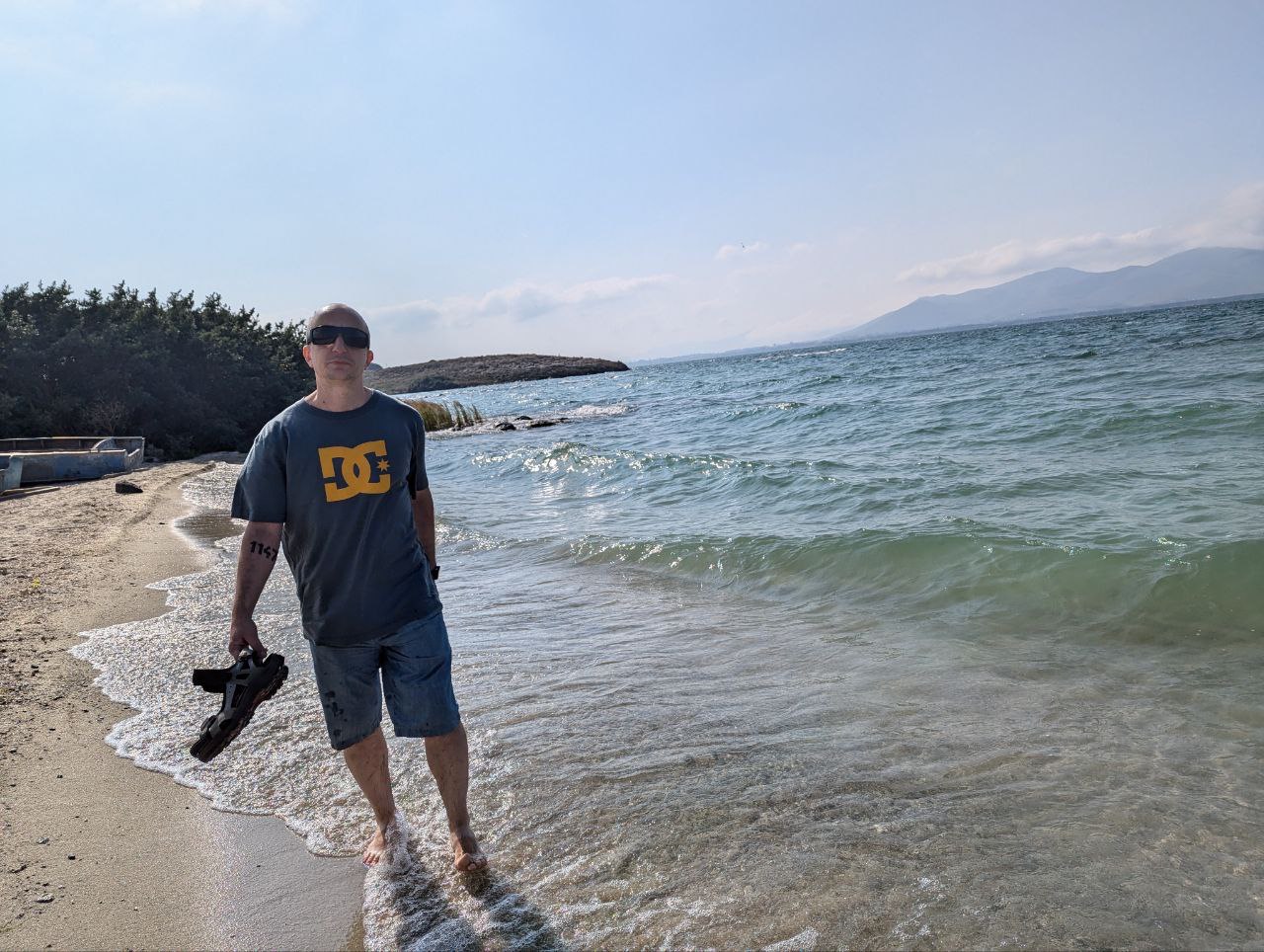
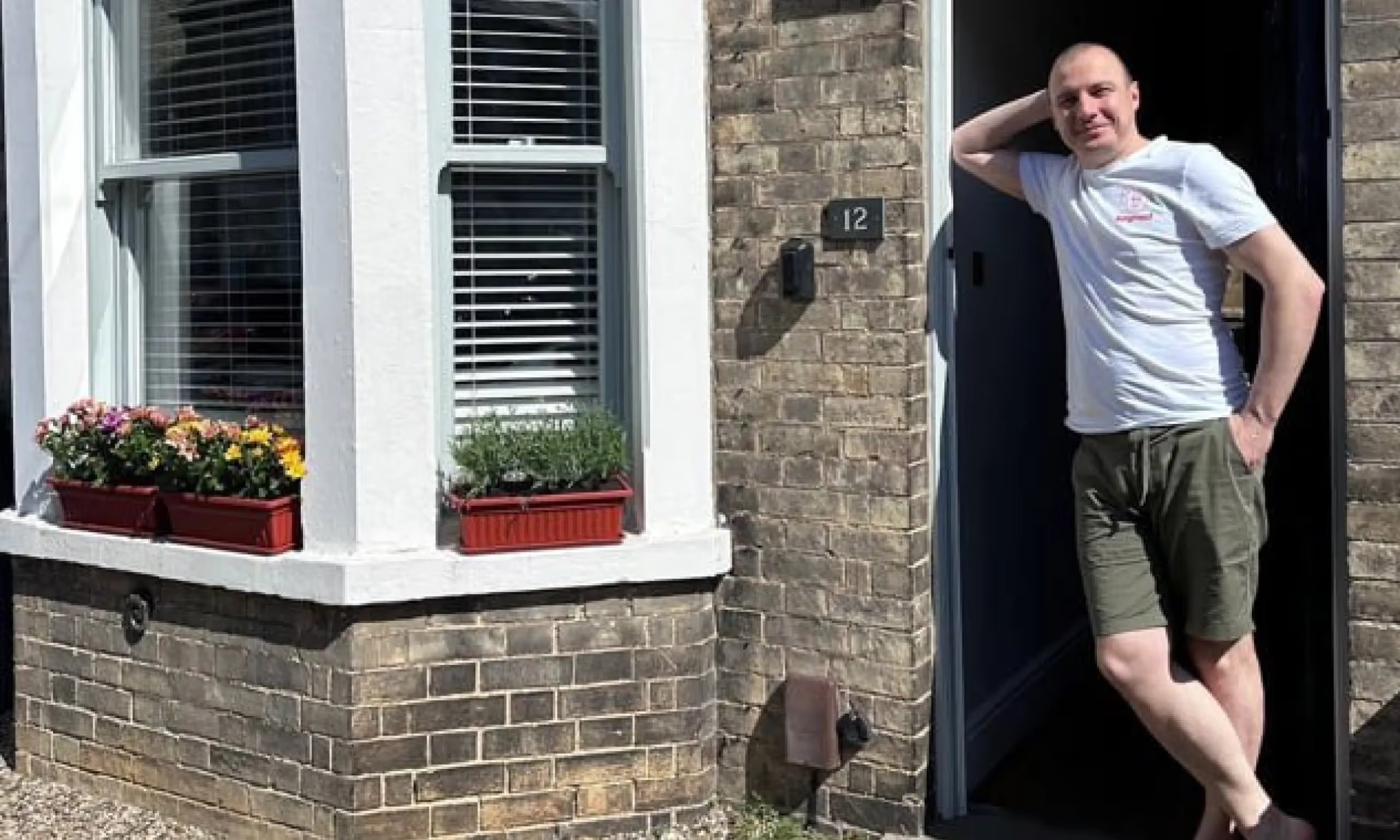
Anton Kolesnik led marketing at Auto.ru, developed fintech products at Yandex, and managed multimillion-dollar budgets. After securing a Global Talent visa, he chose not the obvious London, but the quieter, more academic Cambridge. This is a story about choosing a country, going through the visa process, adjusting expectations to the reality of emigration, navigating British schools, raising children, living in a 19th-century house, and rebuilding everyday life in a different culture.
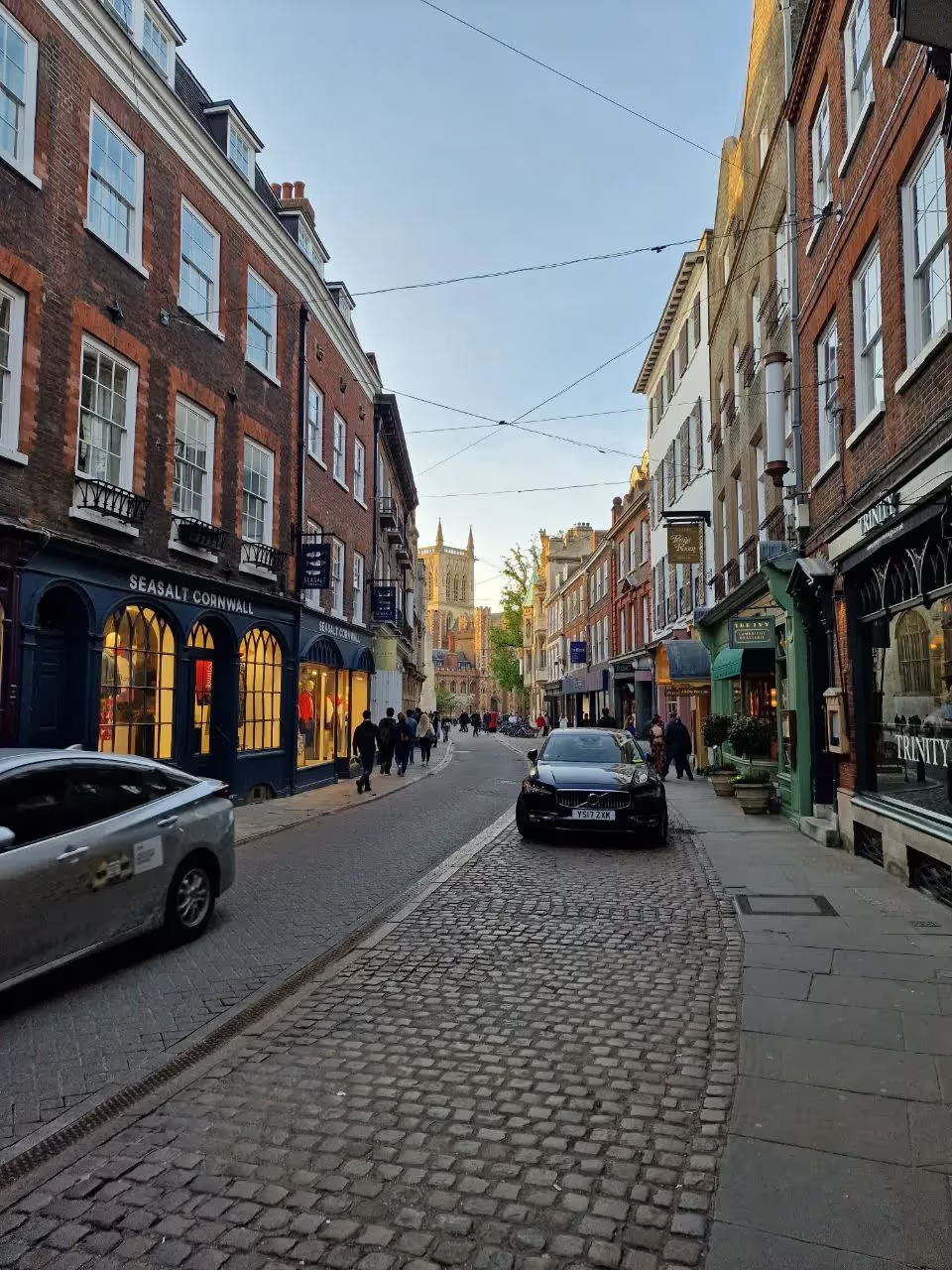
At first, choosing a country to move to wasn’t entirely rational. Quite the opposite — it started with a feeling. I was born in the 1980s and grew up in the Soviet Union, where suddenly, one day, the TV started showing bright images — Chip ’n Dale, NBA highlights, Western cartoons. When you’re seven, it hits you like a lightning bolt. You fall in love instantly.
By the time I was twenty, America seemed like the promised land. I travelled there several times and each time felt that overwhelming sense of freedom — endless highways by the ocean, space that literally takes your breath away. But life moves on. I had children, and my perspective changed. I began thinking not just about where I felt good, but how life would be for my family. And that’s when I started looking at the US differently.
Life in America with children struck me as quite difficult. Urban infrastructure is limited. Outside a few coastal cities, there are barely any pavements, parks are rare, and public transport is lacking. Even to pop to the shop, you need to get in the car and drive.
I wanted a different kind of life — more human, where you could simply walk out the door and be in the city, not in the driver’s seat. Around that time I got into urbanism, read The Death and Life of Great American Cities, and began seeing cities through a more critical lens. I realised: the American model just isn’t for me.
For a while I seriously considered the Netherlands. It stayed on the list right until the end. But when the far-right party won the elections and anti-immigration rhetoric started growing louder, I understood that I didn’t want to build a future there.
In the end, the UK won out — mostly for practical reasons. First, the language. I’ve studied English since childhood, so the transition would be easier. Second, education. I have two daughters. The eldest was attending one of Moscow’s best schools, focused on academic excellence. And the UK offers strong academic education not just at university level, but in regular schools too.
And finally, my younger daughter has autism spectrum disorder. And here, the UK has truly impressed me. For the first time, I felt what an inclusive society looks like. No one makes it into a tragedy. No one stares. No one says “she’s not normal”. She’s treated like any other child, supported and included in everyday life. She attends a mainstream independent school — and that’s a huge plus for this country.
Of course, I also considered taxes, the naturalisation timeline. But the UK is also Sherlock Holmes and Radiohead, Monty Python and Stephen Hawking, ancient universities, eccentric traditions, and tea with milk. I thought about all the people whose minds, resilience, and calmness I admire — and realised most of them are from here. The UK won by a mile. This is the place where I want to start the next chapter of my life.
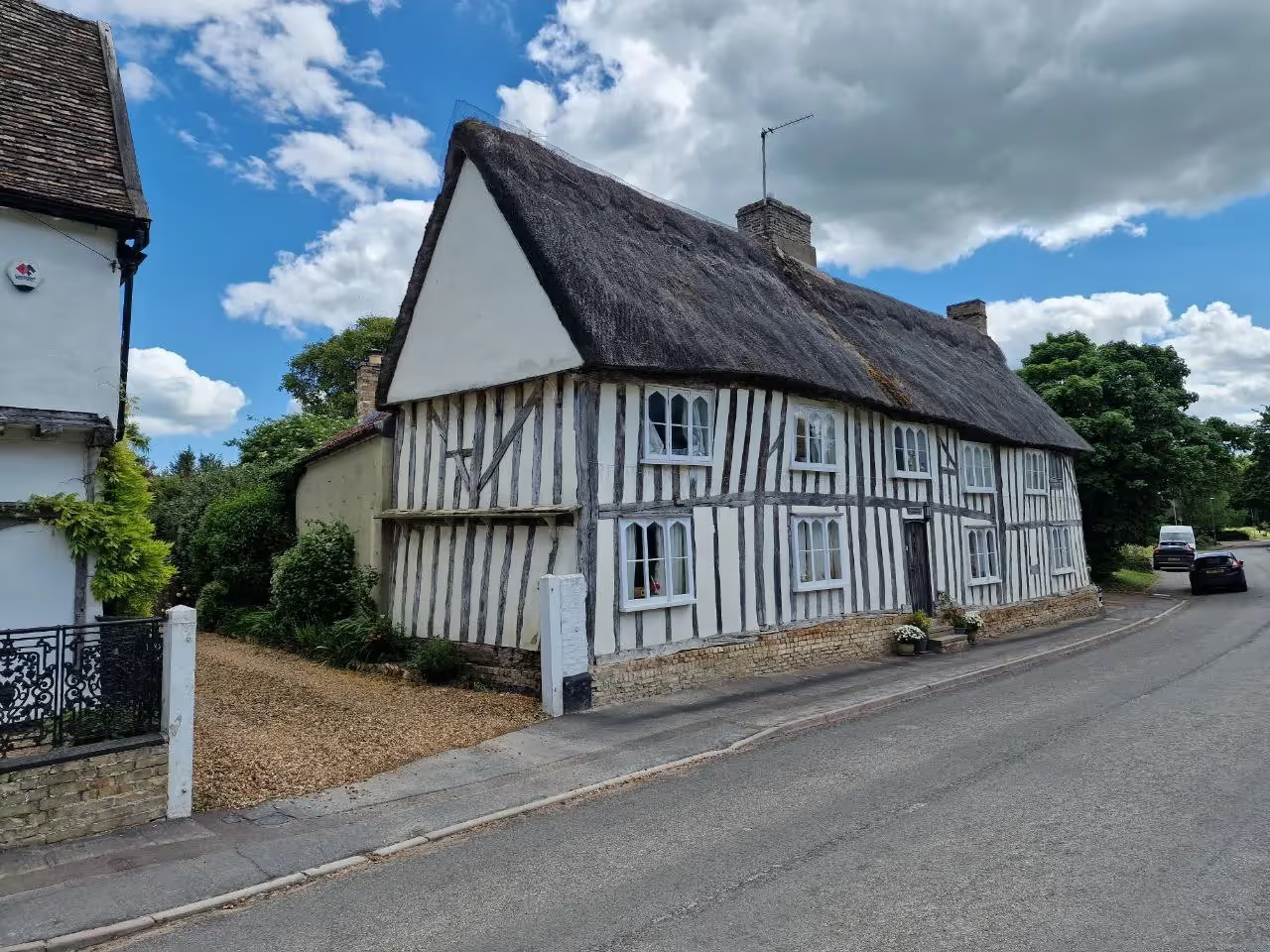
By the time we had firmly decided to move to the UK, we’d already lived in a few other countries — first Portugal, then Serbia. Portugal greeted us with a bureaucratic and domestic nightmare: the builders damaged the house, heavy rain flooded the flat, the wiring short-circuited… A lot hit us all at once. It felt as if the universe was sending us a signal: “this place isn’t for you.”
Serbia, on the other hand, left me with warm feelings. We always saw it as a temporary stop — just somewhere to stay for a year while preparing the Global Talent case, deciding where to move, and reaching the right mental readiness for the next step.
It’s easy to live without stress in Serbia. People take you as you are, no one interferes in your life, and there’s no pressure to constantly prove something.
But I couldn’t imagine living there permanently. Too many things pull you backwards — in terms of everyday life, infrastructure, dealing with the state. A simple example: you order something online, and then wait weeks — or never receive it at all. The courier might just decide not to show up. Serbia is all about “take it easy, no rush.” That kind of Balkan bureaucracy and slowness was hard to get used to. I need systems that work, clarity, the ability to make plans.
And then there’s the environment. In winter, the air in Belgrade just stands still. Smoke from wood stoves hangs in place, with no wind to clear it. As I recall, official data consistently ranks Belgrade among the world’s top 10 most polluted cities in winter. It’s hard to live in that all the time. After that experience, I started to understand why people talk so much about environmental quality after moving abroad.
Still, I’m grateful to Serbia. It was a soft, human year. Everything there reminded me of summer holidays at my grandmother’s — gentle, slow, familiar. But eventually it started to feel like the holidays had gone on too long. It was time to return to real life.
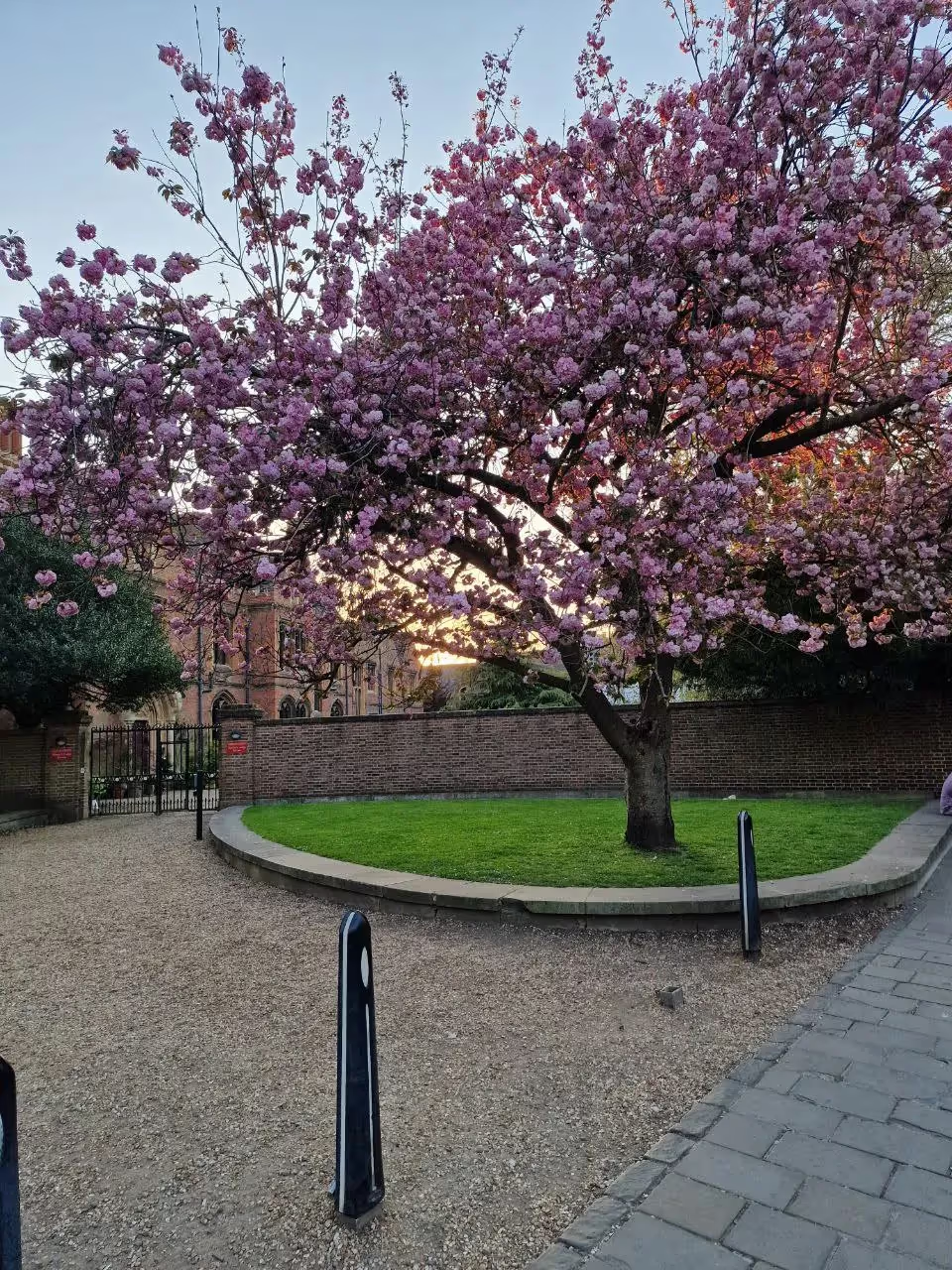
For a long time, I thought the Global Talent Visa was completely out of reach — something reserved for people who speak at conferences with thousands in the audience, build unicorn startups, or publish academic papers cited by Harvard. Certainly not for someone like me.
It’s amazing how deeply that post-Soviet “I’m not good enough” mindset can run. Even though everything in my professional track record said otherwise: I’d been the CMO at Auto.ru, launched marketing from scratch, built teams, scaled reach, developed products used by millions every day. All with clear metrics, case studies, and measurable outcomes. And yet, admitting that this might actually qualify as “talent” — that took time.
The turning point came in conversations with former colleagues. I knew people I’d worked with who had been granted the Global Talent Visa. We’d done work at a similar level, had similar impact. That’s when I first thought: maybe I’m eligible too? Maybe I should give it a try?
The preparation was the longest stage. Not because it was difficult — but because of inertia. It felt like writing a dissertation for yourself. And the challenge wasn’t technical, it was emotional. You keep thinking: this isn’t a big deal. So what if we managed to make TV ads perform several times better than average? That’s when working with visa consultants turned out to be a game changer. When someone says, “That’s impressive, include it,” you start to see your career in a new light.
The whole process went surprisingly smoothly. Writing up the case studies, collecting recommendation letters, preparing the documents — none of it was as intimidating as I’d imagined. And British bureaucracy was a pleasant surprise: follow the instructions, and everything works like clockwork.
Three days after submitting my documents to Tech Nation, I got the endorsement. I know others have to revise and resubmit their applications — I was lucky. But more importantly, I finally stopped thinking I wasn’t good enough.
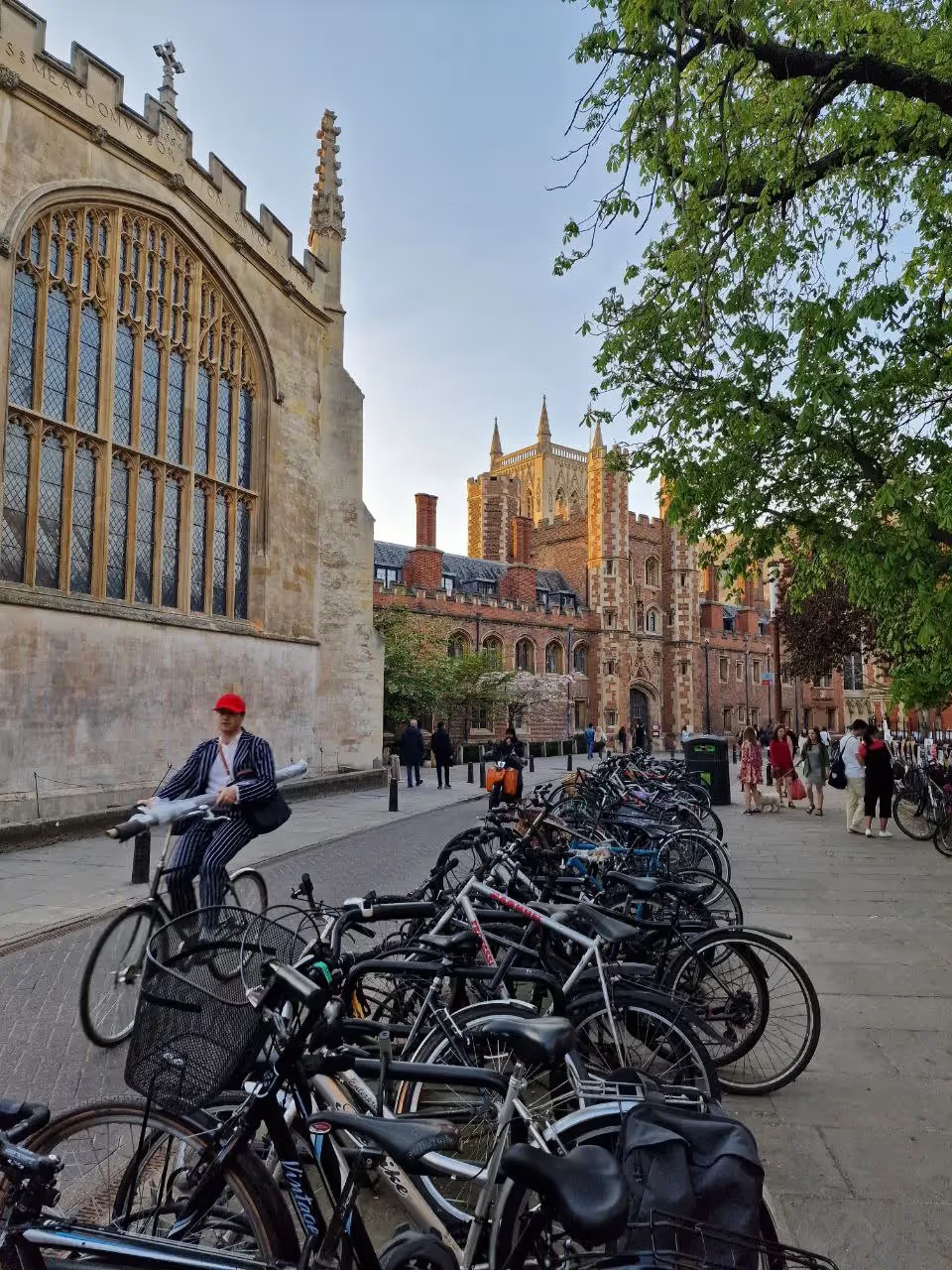
When we arrived in the UK and were driving from the airport into central London, I looked out the window and couldn’t shake the feeling that I was back in the grey, soulless outskirts of Moscow. It all felt strangely familiar — dull and uninspiring. And that’s when the question first came to mind: why live in London at all?
I work remotely. I don’t need to go to an office every day. I’m not part of the startup crowd, not pitching ideas or hopping from one networking event to another. I’m an introvert. A bike, a couple of my own projects, and my family — that’s enough. Sure, theatres and museums are great, but let’s be honest: with two kids, there’s not much time for those.
My wife and I sat down and thought — maybe we should look outside of London? Somewhere within an hour’s train ride, so we could still get into the city when needed. I started researching schools for our eldest daughter, and along the way, made a list of towns. We wanted something peaceful but lively. A place with warmth, but also a sense of space.
I think I travelled across almost the entire country in three weeks — from small coastal towns in northern Scotland to Birmingham and Manchester. Some places were lovely, others frankly depressing. In some, I felt physically unsafe — walking down the street instinctively gripping my phone. Even London turned out to be many different cities rolled into one. It’s a remarkable place — you can choose your own version of it.
And then I arrived in Cambridge. I remember thinking, “Please don’t let it disappoint.” And it didn’t. It’s got the vibe of a university town — vibrant but not hectic, compact but not provincial. Students, professors, startup founders, cyclists — the perfect mix.
Cambridge isn’t London. There’s no frantic pace, no big city pressure. But there are farmer’s markets, neighbourhood festivals, and streets where people compete over who can decorate their windows best for Christmas. Cows graze peacefully next to labs where major scientific discoveries — like the structure of DNA — were made. There’s a strong sense of local community. And what’s especially important to me: cycling isn’t a hobby here — it’s a way of life. Cambridge is the unofficial cycling capital of the UK, and you feel it everywhere.
No, there aren’t five museums within walking distance. But you do know the name of your greengrocer, your local barista, and half the parents at school. And you can hop on your bike and, in fifteen minutes, be cycling through the stunning countryside of East Anglia. That’s worth a lot.

One of the most important factors when relocating is the children. We have two daughters. The eldest is ambitious, with strong academic inclinations. The younger is on the autism spectrum. It was crucial for us to find not just a good school, but a place where both of them would feel comfortable and supported.
In this regard, the UK feels like an incredibly well-suited country. To begin with, here, autism isn’t a stigma. It’s not a label, not something that attracts pity, nor something people shy away from. It’s simply a characteristic. No one pretends a child is “different”. No one overdoes it with smothering care either. Instead, the approach is one of natural, everyday inclusion.
Our younger daughter started attending a private school. Yes, the class sizes are smaller, and yes, the attention is greater. But most importantly, the school found the right approach to her from the very beginning. As it turned out, one of the staff members was trained to work with autistic children. She integrated smoothly, made friends — and for the first time, we saw her playing with other kids. Before, she would always keep to herself.
She’s now being matched with a speech therapist, with the school helping to organise everything — without making a fuss, just wanting to help. That means a great deal to us.
Things were a bit easier with our eldest — she already spoke the language and has an easy-going nature. There were nerves in the beginning, of course — the first few weeks were emotional, with tears and anxiety. But after a couple of months, everything settled: new friends, parties, sleepovers, and a familiar rhythm to her life. She’s now enrolled at one of the UK’s top 20 schools.
Overall, the children’s adaptation went more smoothly than I expected. Maybe it was due to our previous moves, or the atmosphere here, or maybe just luck. Probably a bit of everything. But the main thing is this: I see that they are safe, respected, and understood. And that gives me peace of mind and confidence that we made the right choice.

We’re currently living in a late 19th-century house in the heart of Cambridge. But that didn’t happen straight away. Our first attempt was to rent a flat closer to the university part of town — a beautiful modern building next to the field where the rules of modern football were first written. Everything seemed perfect — until it came to the paperwork. We were turned down.
Finding a home in the UK is an adventure in itself. Especially when you’ve no credit history, no UK employment, and you’ve just flown in from Serbia. Everything collided at once: peak rental season, our children due to start school, and we had no contracts, no utility bills in our name, no real understanding of how the system works.
We lost that first flat simply because, in Serbia, the landlord paid utility bills directly and we reimbursed him. As a result, the utility bills didn’t have our names on them. It sounds ridiculous, but in practice, it was enough to get us rejected. The landlord was nervous — to him, we were “invisible”, untraceable on paper.
Luckily, we got a second chance. Through a small agency, on recommendation, we found a house — not a flat, but an actual house, which turned out to be a real blessing. Quiet, spacious, and stress-free. We paid six months’ rent upfront. That’s actually fairly common here — especially if you don’t yet have a UK job or a regular income into a British bank account.
I initially tried to send the payment from a European bank account where I kept my savings. The money got stuck. The receiving bank — one of the UK’s biggest — didn’t accept the transfer and gave no explanation. They simply froze it for an internal check. It took two weeks to get it back, and in the meantime, the landlord was starting to get worried. Fortunately, I also had a Revolut account, and the payment went through without a hitch.
Since then, I’ve learned: sending money from abroad into the UK is always a risk. Even if it’s not in roubles, even if it’s clean and well-documented. The British banking system is extremely cautious, especially if you’re a new client with no track record.
My advice? Open a UK bank account as early as possible. And as soon as you secure a property, make sure the utility bills are in your name. That matters here. Utility bills aren’t just scraps of paper — without them, you barely exist. And if you’ve got a family, split the bills between the adults. Let each person have at least one in their name — council tax, water, whatever — so you don’t end up with only one adult officially “on record”.
Energy efficiency is another important, but manageable, issue. Our house is from the 19th century — not the warmest. In winter, we pay around £200 a month for heating and water. But we keep the temperature comfortable — 22°C, like back in Russia. I suppose we’ll eventually adjust to 20°C. It’s all a matter of habit.
Cambridge, by the way, is a very bike-friendly city — which suits me perfectly, as I’ve long given up driving. But if you do drive, sort out parking well in advance. It can be a real hassle. Old houses, narrow streets, high density — not exactly car-friendly.
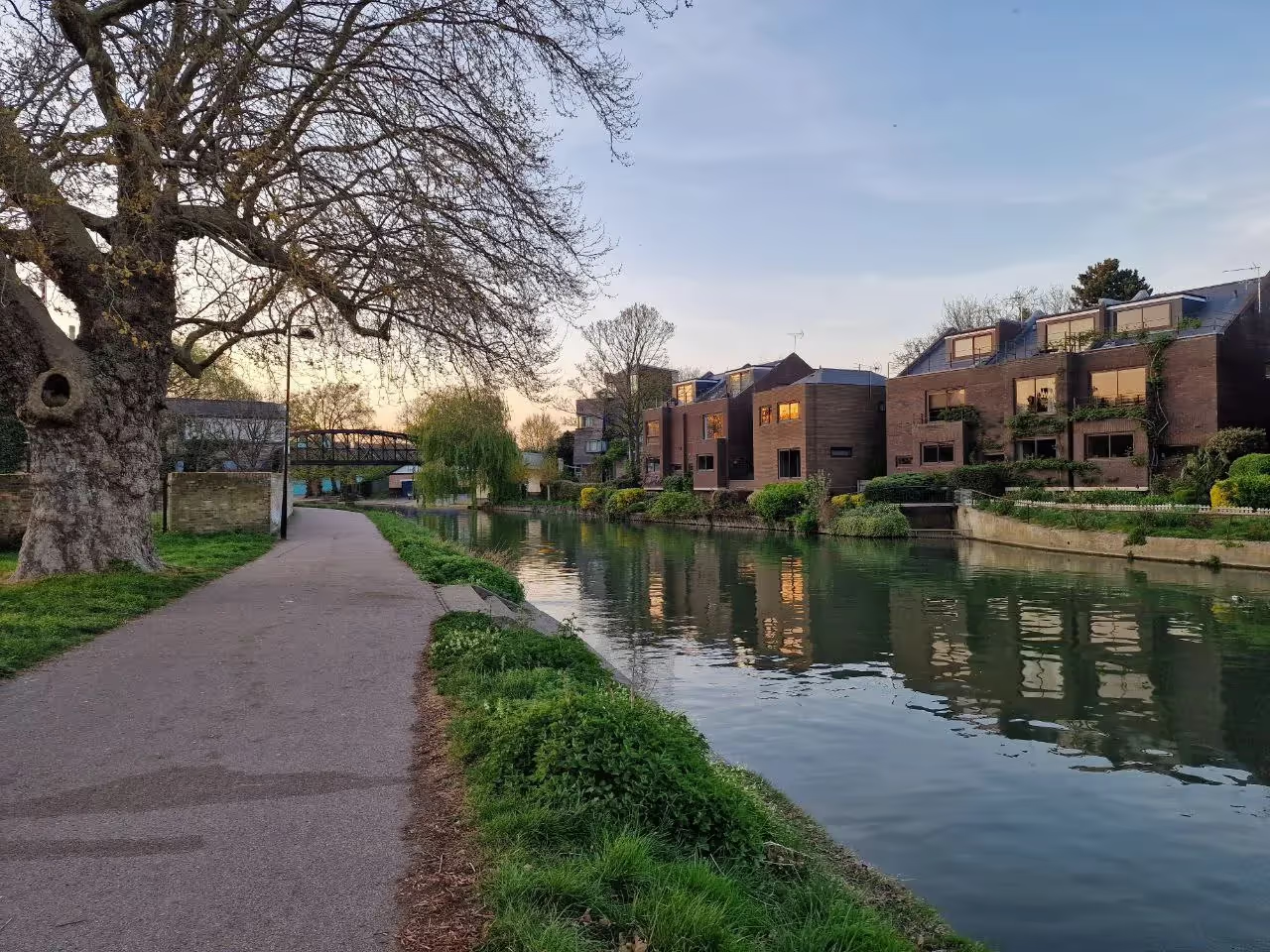
I’ve always been a fairly introverted person. For me, maintaining constant social contact feels more like a burden than a joy — even though I’m quite a decent marketer and a big part of my work involves talking to people. In real life, my circle is small: family, a few clients, and a couple of other parents from the kids’ school. But even those are more like light overlaps and small talk than deep involvement. In that sense, Britain turned out to be the perfect country: your personal space is respected here. No one pries into your private life. No one expects you to go and “have a rakija with the landlord,” as was the case in Serbia. If you want to chat, doors are open. If you want silence, people get it.
I sometimes think that, over time, I’ll look for more ways to socialise — maybe join a cycling group or a local football community. Especially since Cambridge, where we live, is perfect for that: a bike-friendly town with a welcoming vibe and local teams like Cambridge United, which my daughter and I have already been to see. And recently I joined CAMRA — the Campaign for Real Ale — the UK’s oldest beer appreciation society, founded in 1971. It supports local pubs and independent breweries, and as a long-time beer geek, it’s my own way of connecting with the local culture.
Of course, British English has been a challenge in its own right. It turns out knowing American English and understanding the British are two entirely different things. Especially in regions like Birmingham or Liverpool, where at times you genuinely can’t make out a single word. But there’s a thrill in that too: the language becomes something alive, flexible, and real.
Britain seeps into you gradually. It’s not a sprint, it’s a long-distance run. In the early months, everything feels slightly muted — the people, the transport, the food, even the weather. No sharp contrasts, no pressure. No one is in a rush. Emails get answered politely — but never immediately.
And one more important feeling. Britain is so profoundly multicultural that you never feel like an outsider. Around you are people from Poland, Bangladesh, Nigeria, Hungary, Romania. And there are no strangers — because here, “locals” come in many forms.
Our neighbourhood — Mill Road — was once known as Little Russia because railway workers who supported Marx and Lenin lived here in the early 20th century. These days, of course, it’s a very different crowd and a very different life. The local market, the winter fair, the shops, the little stores, the evening Afghan coffee and Arab sweets — everything stays open late during Ramadan. The street we live on is considered the most vibrant in the city — not touristy, but real. People come here for the atmosphere.
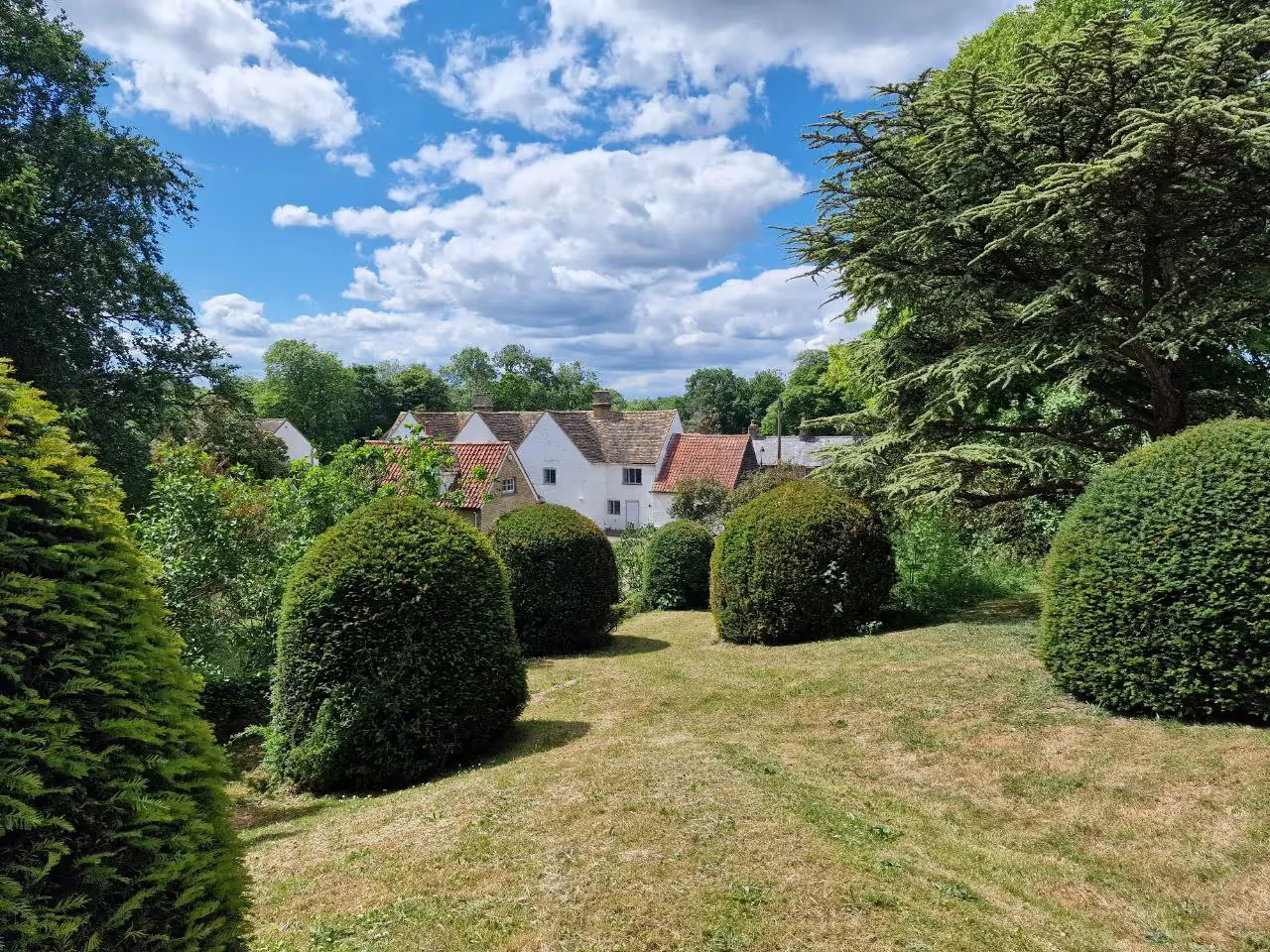
If I could go back and give myself a few pieces of advice from the very beginning of this journey, here’s what I’d say.
First of all, don’t underestimate yourself. We often have a tendency to downplay our achievements or undervalue our contribution to the industry we work in. But in reality, much of what we do actually meets very high standards. It’s important to learn to recognise your own strengths — they’re exactly what a Global Talent visa is based on.
Second, make a habit of documenting your professional activity and achievements in one place. Speaking engagements, articles, case studies, projects — anything that reflects your experience. It’s much easier to collect it all as you go, rather than spending months later hunting down forgotten links and files. It saves time and, more importantly, your sanity.
And finally — before making the decision to relocate, ask yourself honestly whether the country you're choosing really aligns with who you are. The UK, for example, is a country of introverts — politely distant, multicultural, reserved. That can be a perfect fit for some, and less so for others. And that’s okay. It’s better to understand in advance which cultural attitudes feel natural to you — and only then commit to the move. Life in a new country isn’t just about new opportunities. It’s also about whether you feel a natural affinity with the people around you.